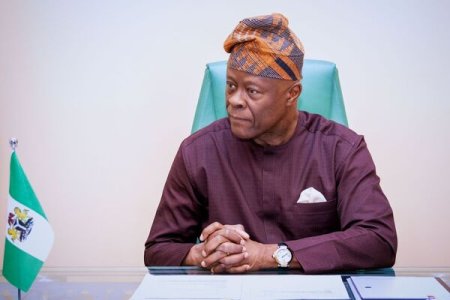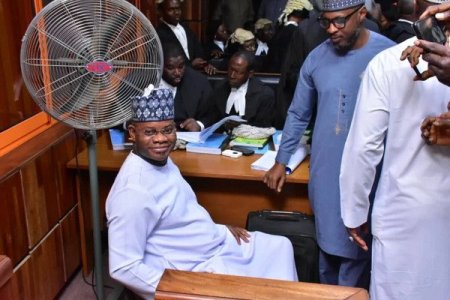
Nigeria’s Finance Minister Wale Edun reveals that the country’s $600 million monthly fuel imports also serve neighboring nations, not just Nigeria. This disclosure, following the subsidy removal on May 29, 2023, has sparked controversy and criticism, intensifying the #EndBadGovernance protests.
In a recent interview on AIT, Nigeria's Finance Minister and Coordinating Minister of the Economy, Wale Edun, disclosed that the country’s fuel imports are not solely for domestic use but extend to neighboring countries. Nigeria reportedly spends $600 million each month on fuel imports, a significant portion of which benefits neighboring nations across West, North, and even Central Africa.
Edun explained that the decision to end the fuel subsidy on May 29, 2023, stemmed from the realization that only a fraction of the subsidy reached the poorest 40% of Nigerians. The removal was intended to address the issue of inaccurate fuel consumption statistics and the disproportionate benefits received by foreign entities.
Additionally, Edun highlighted that the N570 billion distributed to state governments from December 2023 was a reimbursement under the COVID financing protocol, aimed at bolstering food production and supporting state economies. This move aligns with President Bola Tinubu's broader economic strategy.
The Minister's comments have sparked widespread reactions, with many questioning why Nigeria continues to support fuel consumption across the continent rather than focusing on domestic needs and infrastructure development. Critics argue that the funds spent on fuel imports could be better utilized within Nigeria, including investing in local refining capabilities to reduce dependency and boost economic growth.


![[VIDEO] Arise TV’s Rufai Oseni and Lere Olayinka Clash Over FCT Minister's Controversial Land Dispute](/data/attachments/211/211348-34bf3a0a5272f4b7b8706c7632893cb4.jpg?hash=N4mt9lj3-d)


